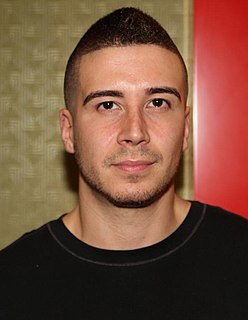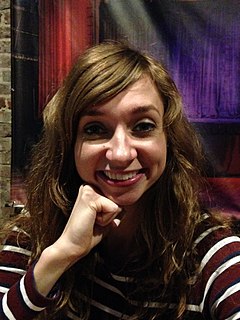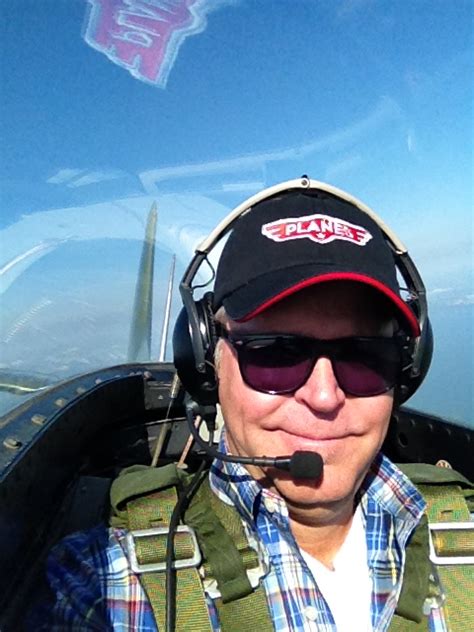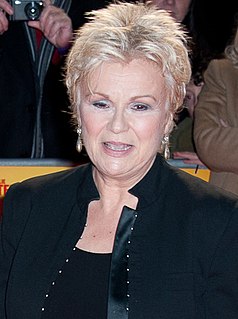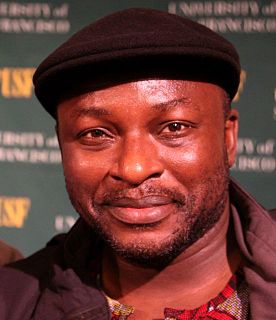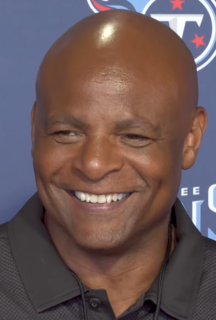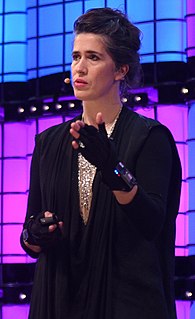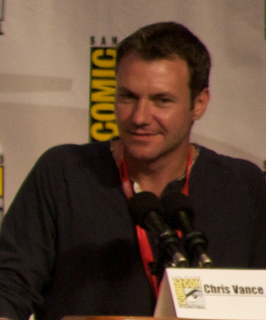A Quote by Vinny Guadagnino
I've always been more natural at doing hosting things: reading teleprompters, taking direction and ask-ing questions... I'm actually able to perform a little bit.
Related Quotes
I think that by doing the podcast, I've grown to actually enjoy hosting a little more and realize that my role is a bit of a host, even though I thought I was totally avoiding that by creating this construct. But hosting a late night show has never really been a goal of mine in particular, but it could be fun.
I think as you grow up and you see things which are around you and you ask questions and you hear the answers, your situation becomes more and more of a puzzle. Now, why is it like this, why are things like this and since writing is one way in which one can ask this questions and try to find these answers, it seems to me a very natural thing to do, especially as it meant stories which I always found moving, almost unbearably necessary.
So actually what that was able to do was twofold. For me, it helps illustrate what DTS is capable of doing right from the beginning. And secondly, technically, it actually gave us a little bit more time so we could just finesse some effects and things like that, because when you release theatrical, you actually get a bigger window than if you're DVD when you have to have it done sooner so they can press the DVDs and all that kind of stuff.
When I took drum lessons as a kid the teacher would always ask me if I practiced, and I'd be like 'nope' and he'd be like: "Well you're not going to be able to play the beat." So I would ask him to show me, and he'd show me and I'd be able to hear it and play it, so I've always not really been good at reading things.
If I'm reading something I happen to know and gets it wrong, I just don't trust the book any more. What I ask of a novel I'm reading is that it should know a fraction more about the things I know than I do. When I'm writing...I ask myself: would I be convinced by this if I read it? If I knocked against this bit of scenery, would it feel solid?
Thought creates things by slicing up reality into small bits that it can easily grasp. Thus when you are think-ing you are thing-ing. Thought does not report things, it distorts reality to create things, and as Bergson noted, "In so doing it allows what is the very essence of the real to escape." Thus to the extent we actually imagine a world of discrete and separate things, conceptions have become perceptions, and we have in this manner populated our universe with nothing but ghosts.
People see so many things in the paintings. Although I never think of them, it charms me a little bit that people actually project actual scenarios on to the paintings. Hopefully that means that they have a little bit of life to them. Figuring out the rhythm, the structural element has been the key thing in this work, more than the color element. It really was the variety of different widths that lead to a certain movement, a rhythm. Otherwise I'd fall into anything that was too stripy or almost like bar codes, and it thwarted the natural flow of the painting.
Whenever I'm giving talks, I always ask people to think of the most obscure questions because I enjoy those the most. I always get the same questions: Why does Pickwick say "plock" and will there be a movie? I like the really obscure questions because there's so much in the books. There are tons and tons of references and I like when people get the little ones and ask me about them. It's good for the audience [and also] they realize there's more there.
As things have progressed and I've gotten older, I've gotten more and more involved on the producing side. It's been a natural progression. The more you become exposed in a particular medium, the more you can bring to the table and people start trusting you. You're valued a little bit more, so you have more of a voice. It's something I would like to do, through the rest of my career.
